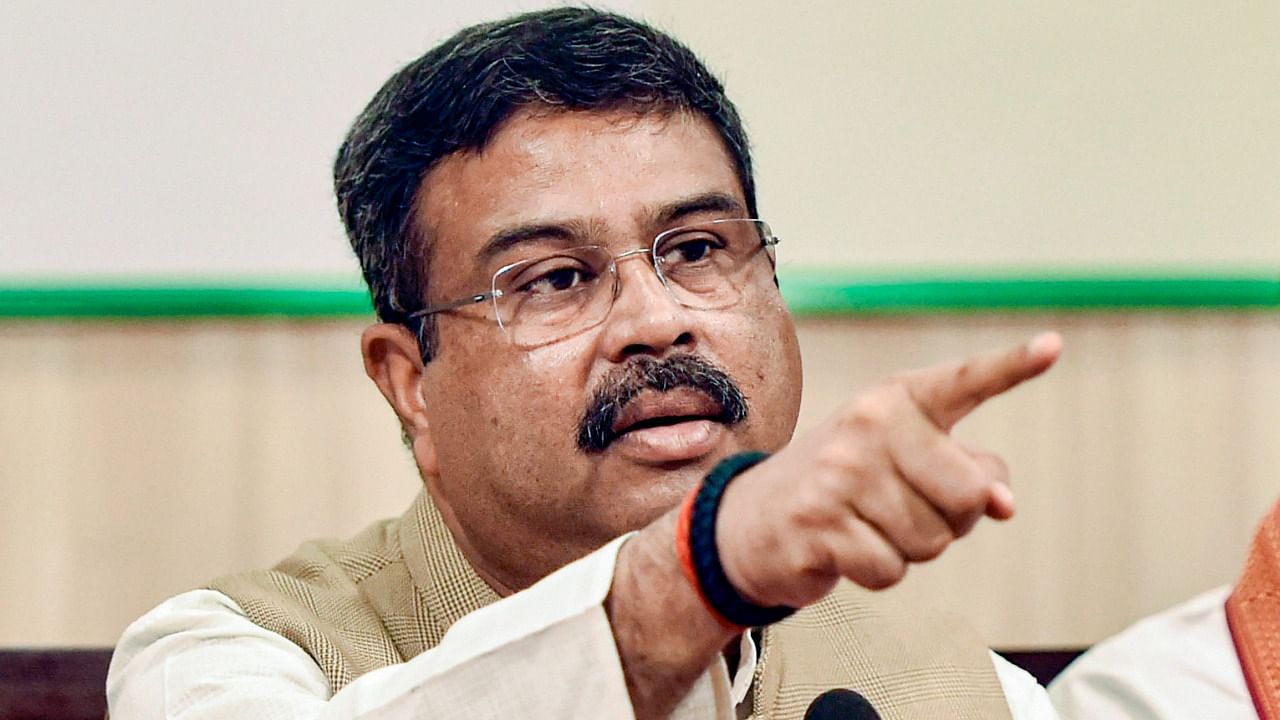
As educational institutions across India gear up for the new academic year, Union Minister for Education Dharmendra Pradhan sat down with Rashmi Belur to discuss the learning gap, NEP and other issues. Excerpts:
The Covid-19 pandemic has resulted in a huge learning gap among kids. How will the Centre address this?
The Covid pandemic has left a lasting impact on school education and we must work together to address this issue. Education is a concurrent subject and it’s largely the states that have to formulate their own plans. Of course, the Centre will lend its helping hand. There are over 25 crore schoolchildren across the country. I appreciate the Karnataka model — Kalika Chetarike — aimed at bridging the learning gap.
Also Read: The gaping gap in learning maths
What about quality of teachers, which has become a subject of discussion across India?
In today’s world, teachers have to be dynamic and knowledgeable as they need to work in multi-dimensional roles of a parent, counsellor, teacher, brother/sister and friend. Unless we refresh our teachers and redesign our approach, challenges will be there. The Centre is mulling on creating an ecosystem of capacity building. A good teacher is experimenting every day. All the best practices have to be magnified and taken to the state-level, before turning them into all-India models. It should be an interstate exercise, where we can create an eco-system and here lies the role of the union government.
Is there a plan to hold an all-India entrance exam for engineering courses on the lines of NEET for medical education?
States are independent to make their own decisions. There’s no proposal and the union government can’t mandate it. In case of medical education, the all-India exam was introduced because there was a Supreme Court judgement. As far as engineering is concerned, there’s already a Joint Entrance Examination (JEE), whose scores a few states are considering. Again, this is up to the states. However, NEP has recommended common entrance test for central institutions, which has been introduced for the first time and accepted well by students and teachers.
There is a controversy over introducing Bhagvad Gita in schools in the name of moral education. What is the Centre’s stand on this?
NEP recommends moral and ethical education. Every state has to have its own pathway to introduce this. The Centre will guide the state committees, and NCERT will give an advisory. It’s for the states how they will implement their curriculum. For the governance of schools, the states will formulate their own strategy. We’re for inclusive education and there’s nothing wrong in taking the good aspects from the Quran, Bible or any other religious book. I’ve even advised our committee constituted for the National Curriculum Framework to visit madrasas to understand the moral education they teach. However, ultimately, it shouldn’t be compulsory. It should be the choice of students and parents.
Also Read: Two degrees, many advantages
Parents demand uniform fee structure for schools run by various boards, including CBSE and ICSE. Will the Centre resolve this?
This has to be decided at the state-level. The responsibility of the union government is on a bigger policy framework.
There are allegations of corruption at universities and the appointment of vice-chancellors is an example.
As far as universities are concerned, there are lots of issues. But the competent authorities will look into them, based on urgency. We’re responsible for the positive and healthy educational ecosystem in the country.
Regional languages are now at the centre of a controversy. What do you think is the way out?
There are 22 official languages in this country, including Kannada and Hindi. Language can’t be thrust upon anybody. NEP strongly recommends mother tongue and local language. It’s widely believed that the mother tongue helps in developing critical thinking. The ongoing debate on Hindi, according to me, is unnecessary. English is a global language and there’s nothing wrong in speaking and learning it. I’m proud to write and speak Hindi, because it is an additional language I’m learning. There can’t be Hindi vs English. Or, for that matter, Hindi vs Kannada, Hindi vs Odia and so on. They’re integrating factors and all languages have their beauty. Language is an instrument of connectivity. How can it be negative? I appreciate all languages. We shouldn’t create unnecessary debate and confusion.